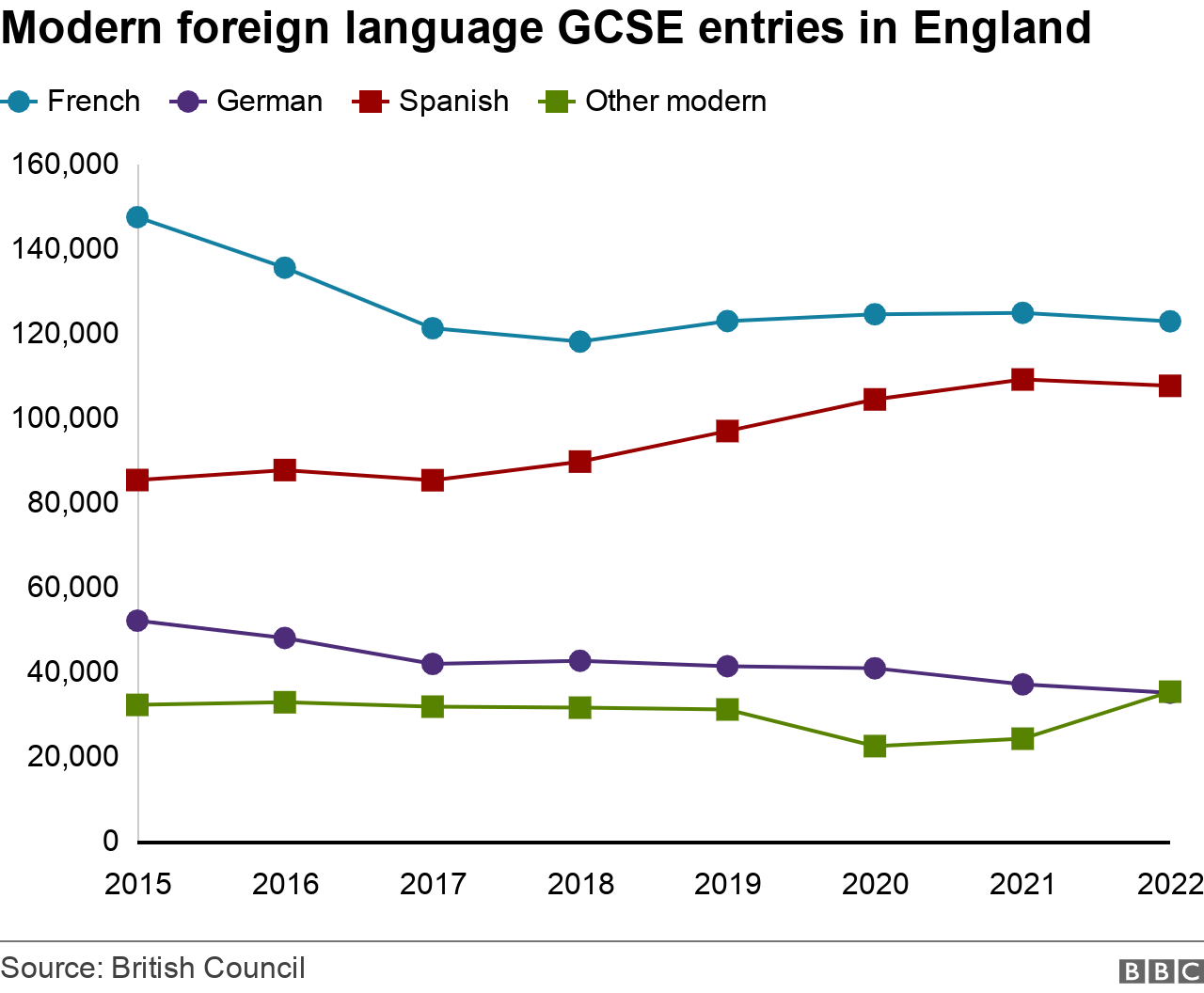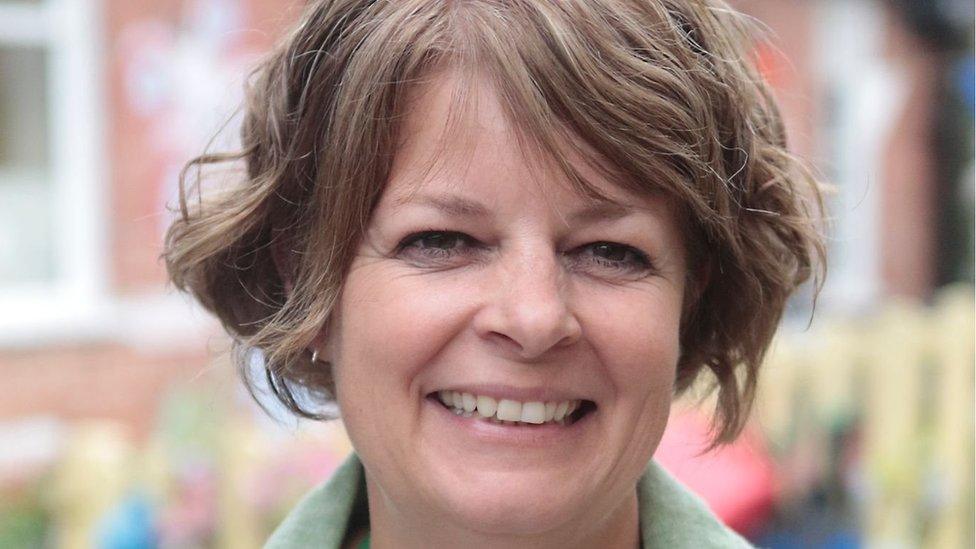Pupils say languages not key to careers - report

The number of entries for modern foreign language subjects at GCSE level has fallen in recent years
At a glance
Majority of pupils do not believe languages are likely to be needed in their jobs after school, according to a survey
Nearly half say they enjoy learning languages, but only 20% say they plan to take one for GCSE
The British Council surveyed 2,083 pupils from 36 schools across England, Scotland, Wales and Northern Ireland
The government says 45% of pupils at GCSE level now study at least one foreign language
- Published
Modern foreign languages are being shunned by pupils who do not want to study them at GCSE because they do not think they will need them in their future careers, a new report suggests.
A British Council survey of 2,083 pupils at the end of their first year of secondary school across the UK found just 20% saying they planned to study a language at GCSE.
It comes against a backdrop of declining numbers of pupils taking modern foreign language subjects past the age of 14.
The Department for Education (DfE) said the government was committed to taking "long-term decisions" on modern foreign languages "to ensure every child has a brighter future".
The survey, taken across 36 schools, suggested that many pupils enjoy learning languages and want opportunities to do so.
It found 73% of those surveyed saying that children should have the opportunity to learn a language at primary school, while 46% said they loved or liked learning languages.
But more than one in four said they did not plan on taking a foreign language subject at GCSE level or higher.
Nearly nine in 10 said they did not think it was very likely that languages would be necessary for their careers after school, but a smaller percentage said they believed it was not useful at all to learn another language.
Uni should 'carefully consider' languages cut plan
- Published4 December 2023
Teachers 'improving work-life balance' with AI
- Published28 November 2023
Pupils put off by 'difficult' modern languages
- Published27 September 2023
Deputy wants children to study languages at GCSE
- Published16 October 2023
Data from the British Council's latest report on language trends in England, external, published in June, suggests the take-up of some foreign language subjects is dwindling.
Studying a foreign language beyond the age of 14 has not been compulsory in England since 2004. Regulator Ofsted has said the number of entries at GCSE level for modern foreign languages since then has "declined significantly".
Since 2005, those for French have more than halved, according to data from the Joint Council for Qualifications published in this year's Language Trends report.
The downward trend has continued since 2015, when the number of French GCSE entries was 147,000, falling to 123,000 in 2022.
Entries for GCSEs in German have also fallen, from 52,000 in 2015 to 35,000 in 2022.
However, take-up of Spanish has increased, rising from 85,000 GCSE entries in 2015 to 107,000 in 2022.

French and German have declined in popularity since 2015, while Spanish and other modern foreign languages have increased
At A-level, the number of entries for Spanish overtook the entries for French in 2019 and has remained higher ever since.
The number of GCSE entries for other modern foreign languages, such as Arabic, Polish or Mandarin, has also remained relatively stable since 2015, with 35,000 total entries last year.
Vicky Gough, schools adviser for the British Council, said it was important to "reverse this trend" for the languages experiencing a decline in popularity.
“We’re noticing children from less privileged backgrounds, especially boys, show reluctance in pursuing languages, partly due to the perceived difficulty, and partly as they and their parents don’t see the value," she said.
"Languages like German are crucial for future careers, especially considering Germany's role as a major trading partner to the UK."
She said work was also under way to boost the number of qualifications achieved by the one-in-10 children in the UK already speaking another language at home, including through a partnership with the Polish embassy.
A DfE spokesperson said the study of modern foreign languages had been in decline before the Conservatives took office in 2010, and said nearly 45% of pupils at GCSE level now study a foreign language.
Related topics
Elsewhere in education news
- Published4 December 2023

- Published1 December 2023

